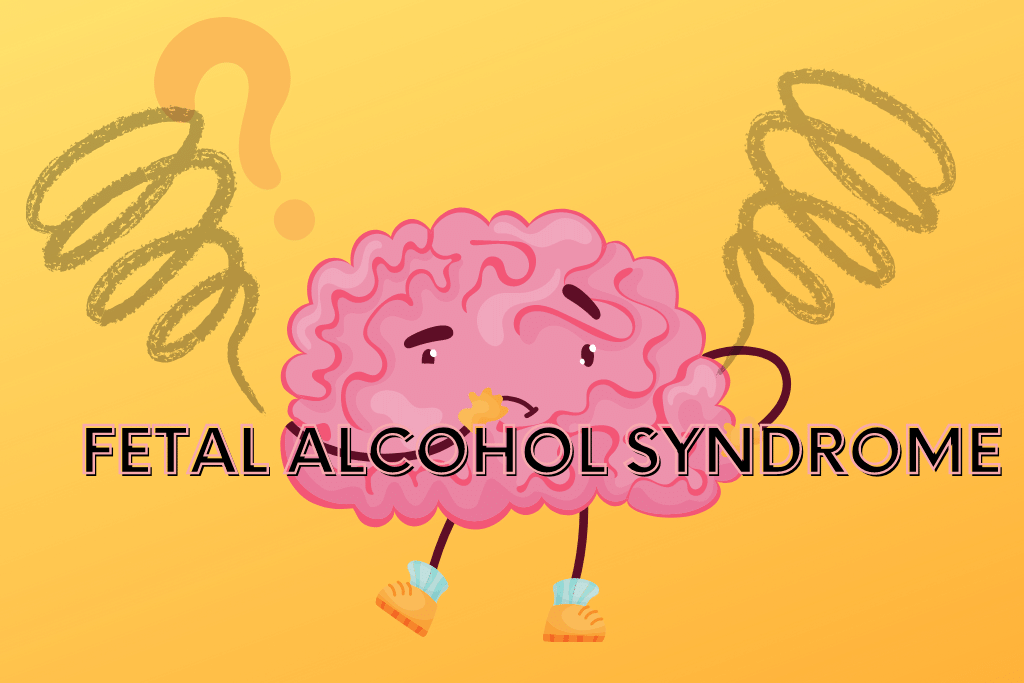
How Fetal Alcohol Syndrome is Affecting Today's Kids
Fetal Alcohol Syndrome
Fetal Alcohol Syndrome (FASD) is a permanent brain disability that is largely undiagnosed, especially in children. It is a spectrum disorder in that it includes a range of linked conditions, both physical and mental. Marcia Grondahl, speaking on FASD, informs us that this disability is 2 ½ times more prevalent than autism and one in twenty kids suffer from it. Many of those kids are also ADD or ADHD.
To prevent fetal alcohol syndrome Grondahls’ advice is to not drink alcohol if you’re trying to get pregnant or are pregnant. In fact much of the research from the Mayo Clinic and CDC advise anyone sexually active during childbearing years to avoid alcohol completely. Marcia’s quest is to educate parents, future parents and grandparents about the effect alcohol and drugs have on FASD. Her experience comes not only from being a Neo-natal nurse practitioner for over thirty years but having two grandchildren with FASD.
In this article we will talk how Fetal Alcohol Syndrome is diagnosed, its’ characteristics and how parents and caretakers can handle this disability. I also will include some important resources throughout for more information. Much of the information is based on the podcast interview with Marcia, so make sure you listen!
How Fetal Alcohol Syndrome is Diagnosed
Many pediatricians and caregivers are not equipped with the information necessary for a diagnosis, thus education on the subject is important. The diagnosis was invented in 1973 according to an abstract published in Social Science and Medicine. Dr. Ken Jones has been actively involved in research, clinical training and education at the Rady Children’s Specialists of San Diego, California.
USC and UCLA also have diagnosis and treatment centers. The important point here is to find a center that understands and treats fetal alcohol syndrome specifically. As mentioned earlier, many children are not mis-diagnosed or not diagnosed at all. Alcohol is broken down more slowly in babies than in adults and thus, the alcohol levels can stay high in the baby’s body. This affects development. If there is a history of the mother drinking or on drugs, this is a good clue that FASD could be the reason for extreme meltdowns or other symptoms.
The Characteristics of Fetal Alcohol Syndrome
FASD is an umbrella diagnosis, in that it is the overall explanation of multiple symptoms. It’s known as an invisible disability because most individuals affected by prenatal alcohol exposure aren’t diagnosed until adolescence or later. The primary characteristics are learning disabilities, poor short-term memory, inferior auditory memory, and delayed processing. They are also impulsive, extremely literal and are unable to function at their age level.
Secondary characteristics include anxiety, fatigue and low school performance. Their meltdowns start with a short fuse that continues with the difficulty or inability to snap out of the feeling. They can’t equate poor judgment with consequences and many times their lack of attention is attributed to ADD or ADHD.
Tertiary characteristics include running away, hyper-sexuality, breaking the law and addiction. One of Marcia’s grandchildren has experienced all of the above. Look on her website to view a letter her granddaughter wrote, Living with FASD. The characteristics listed in this article are not all-inclusive, but you can read further in some of the sources listed. Free Download: Fetal Alcohol Syndrome
How Parents and Caregivers can Handle Fetal Alcohol Syndrome
With FASD, the usual punishments most parents use may make meltdowns worse. There should be consequences, but these kids don’t connect the dots with their bad judgment and consequences, at least right away. One of the best ways a parent or caregiver can handle FASD is with a calm and steady hand. Connection and relationship are extremely important to these kids, so focusing and talking about their safety should be top of mind. Your project is to learn about your child, which should be the case for any child, but especially for FASD kids.
An uncluttered atmosphere is advised. Most elementary classrooms have pictures or postings on every square inch of every wall. This overwhelms these children, creating sensory overload. At home or in the classroom, create a simple atmosphere. Most of all, these children need a safe place to be, so do as much as possible to create that safe environment.
Calming techniques with oils, movement and art may help. Many FASD kids are creatives with music, athletics, pets and other hobbies. They are usually willing subjects but will need your help and encouragement. See Music for Kids. Swings, trampolines, bouncy chairs and even gum-chewing helps these kids.
These are a couple books that will help you further understand the child with FASD: Making Sense of the Madness: An FASD Survival Guide by Jeff Noble; The Everything Parent’s Guide by Rebecca Branstetter, PhD
FAQs of Parents & Families: Fetal Alcohol Spectrum Disorder
Time to learn about your child is time well spent. ...Deborah Johnson
Check out more Online Learning Here for Personal and Professional Development. Also Music Membership Learn Music Again!
DEBORAH JOHNSON, M.A.: Partnering with you to build a sustainable business at haltime with online training, speaking, music membership, webinars & podcast. Author of 4 books, dozens of albums, many up for GRAMMY Awards, 3 musicals & online courses. You can reach Deborah the following ways:Twitter:@DebJohnsonWorks • YouTube ; Facebook: Websites: DeborahJohnsonSpeaker.com; GoalsForYourLife.com; DJWorksMusic.com

